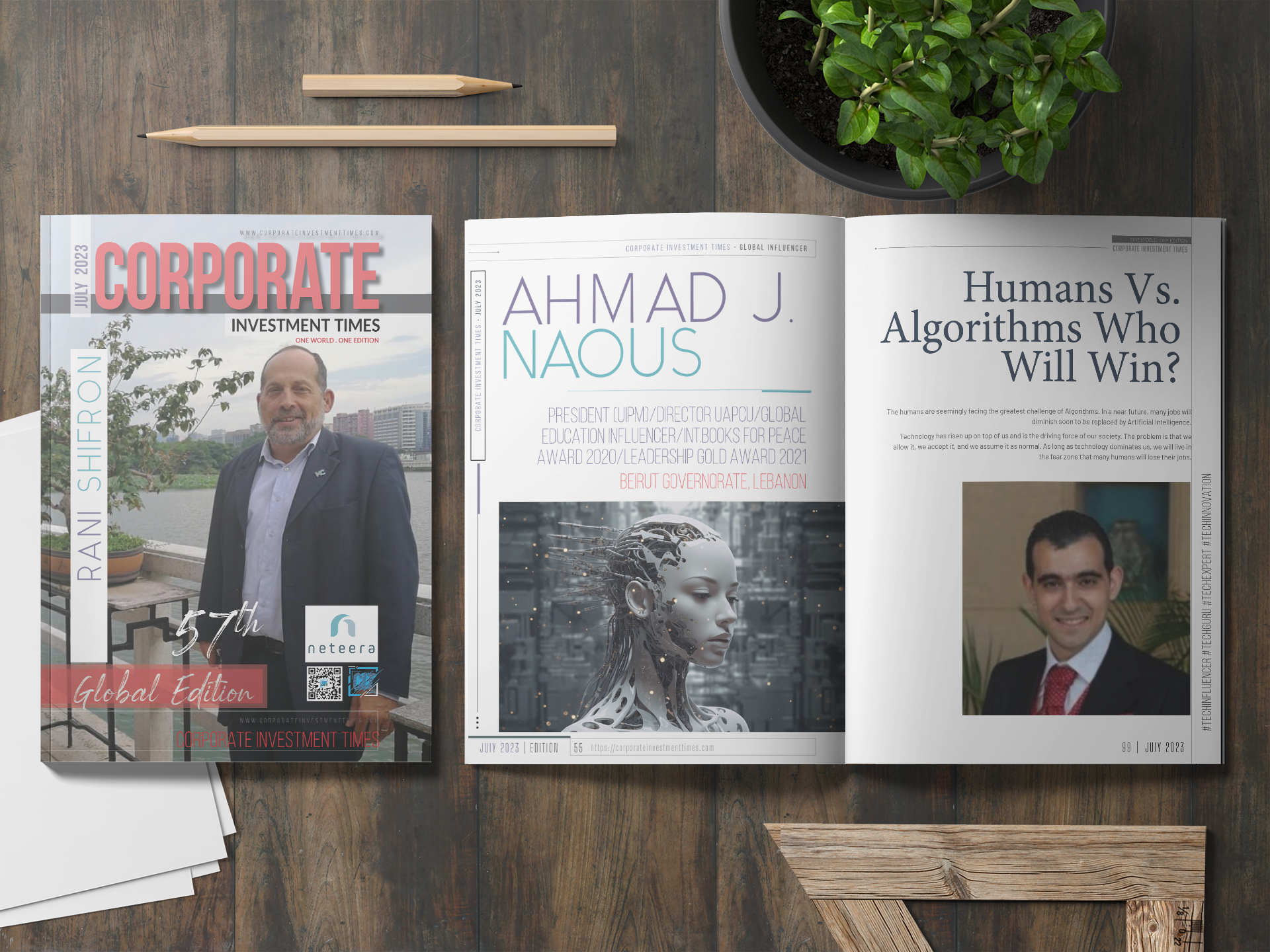The humans are seemingly facing the greatest challenge of Algorithms. In a near future, many jobs will diminish soon to be replaced by Artificial Intelligence.
Technology has risen up on top of us and is the driving force of our society. The problem is that we allow it, we accept it, and we assume it as normal. As long as technology dominates us, we will live in the fear zone that many humans will lose their jobs.
We can see them at work in the world. We know they’re shaping outcomes all around us. But most of us have no idea what they are — or how we’re being influenced by them.
Algorithms are invisible pieces of code that tell a computer how to accomplish a specific task. Think of it as a recipe for a computer: An algorithm tells the computer what to do in order to produce a certain outcome. Every time you do a Google search or look at your Facebook feed or use GPS navigation in your car, you’re interacting with an algorithm.
Algorithms will continue to have increasing influence over the next decade, shaping people’s work and personal lives and the ways they interact with information, institutions (banks, health care providers, retailers, governments, education, media and entertainment) and each other. The hope is that algorithms will help people quickly and fairly execute tasks and get the information, products, and services they want. The fear is that algorithms can purposely or inadvertently create discrimination, enable social engineering and have other harmful societal impacts.
With all of these in mind, the future of algorithms is tied to AI innovation – machine learning and deep learning – that is getting more developed at a fast pace.
In the Middle East alone, user-friendly AI platforms that allow building models will be critical in the deployment of AI at a larger scale. By 2030, billions of dollars in commercial AI revenue are expected to flow to the region. This will contribute heavily to double-digit GDP growth.
At an early stage, only some of the algorithmic systems that are applied in various internet services can be classified as AI or machine learning. Algorithmic systems that, for example, include deep learning via neural networks, include image recognition and speech recognition/generation. Natural language processing for conversational user interfaces like chat-and-voice bots is part of this.
Facts about AI:
Artificial intelligence (AI) could replace the equivalent of 300 million full-time jobs, it could replace a quarter of work tasks in the US and Europe but may also mean new jobs and a productivity boom.
And it could eventually increase the total annual value of goods and services produced globally by 7%.
Generative AI, able to create content indistinguishable from human work, is “a major advancement”, the report says.
Employment prospects
The governments are keen to promote investment in AI in Europe and US, which it says will “ultimately drive productivity across the economy”, and has tried to reassure the public about its impact.
The report notes AI’s impact will vary across different sectors – 46% of tasks in administrative and 44% in legal professions could be automated but only 6% in construction 4% in maintenance.
Some industries that will continue to rely on human workers include writing jobs, social work, criminal defense law, teaching and AI training engineers.
These fields may still be aided by the advancement of AI in the future, but AI and robots can’t replicate the empathy and social intelligence that these fields require. For example, AI could be a helpful tool for educators when trying to gain an understanding of students’ varying levels of competence, progress and temperament — but teachers will still be masters of diving into students’ special interests and providing mentorship. And although jobs that involve writing can benefit from AI content generators, these tools still have shortcomings around misinformation and accuracy, so they are likely far from replacing human writers.
Conclusion:
Humans + Algorithms = The Winning Combination
In our view, AI still has a long way to go in making the ultimate decisions in real-world life situations that require more holistic, subjective reasoning. It still is merely a factual engine that acts based on probabilities and scores, mostly based on historical data, with no context of the implications of the information it is delivering. AI may make the right decisions based on facts, but may lack the empathy that needs to be part of those decisions. We still need humans in the middle to assess the value of insights and decisions to the welfare of humans, businesses and communities. AI can help with providing decision-making points, but humans must still be involved in making that decision – ultimately, it needs to be augmented intelligence instead of pure artificial intelligence.
There’s no doubt that the AI revolution will require re-adjustments and a great deal of sacrifice, But despairing rather than preparing for what’s to come is unproductive and, perhaps, even reckless. We must remember that our human knack for compassion and empathy is going to be a valuable asset in the future workforce, and that jobs hinged on care, creativity and education will remain vital to our society.”











